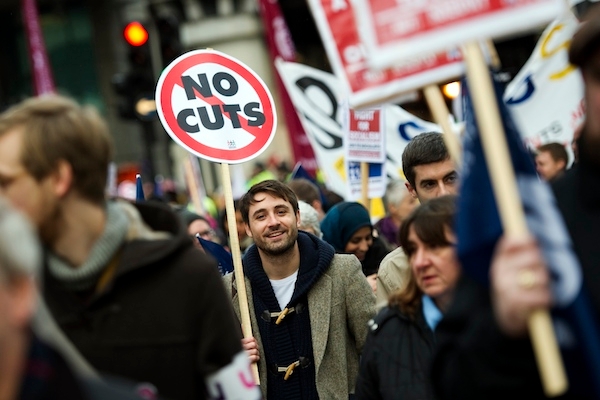‘Support for an increase in public spending rises.’ That’s the headline generated by the latest British Social Attitudes survey results, out today. They show that the proportion of the population saying that the government should ‘increase taxes and spend more’ rose from 31 per cent in 2010 to 36 per cent in 2011 — the first such rise since 2002. Meanwhile, the proportion backing tax and spending cuts fell from 9 per cent to 6 per cent.
Notably, the survey doesn’t give the option of reducing taxes and spending more (ruling out, for example, Ed Balls’ proposed combination of a VAT cut and increased infrastructure spending), nor of increasing taxes and spending less (as the coalition’s deficit reduction programme actually entails). And there are two other important caveats to that headline: support for increased spending is still a minority opinion (55 per cent want taxes and spending kept the same), and it remains well below where it was during Thatcher’s spending cuts in the 1980s and the last round of recession-induced cuts in the mid-90s.
The report is full of other interesting tidbits, particularly when it comes to welfare. For example, while the majority still agree that ‘the government should be mainly responsible for ensuring people have enough to live on if they become unemployed’, it’s a much thinner majority (59 per cent) than it was a decade ago (88 per cent). Indeed, 62 per cent now say that unemployment benefits ‘are too high and discourage work’ — the highest proportion since the survey began in 1983.
The Telegraph claims that this shows support for Iain Duncan Smith’s reforms, and indeed it seems to. But when asked how the benefit system should be improved, most respondents chose ‘targeting benefits only at those who really need them’ as a top priority. That suggests there would also be support for a welfare reform that David Cameron has specifically rejected: ending universal benefits such as the Winter Fuel Allowance for pensioners.






Comments